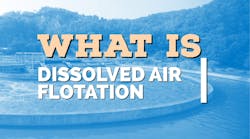Speaking before hundreds of water suppliers and security experts on the fifth anniversary of 9/11, Robert B. Stephan, assistant secretary for Infrastructure Protection for the U.S. Department of Homeland Security (DHS), lauded the water sector’s leadership in protecting infrastructure and responding to the “very complex beast” of terrorism and natural disasters.
Stephan addressed the opening general session of the fourth Water Security Congress, hosted by the American Water Works Association (AWWA). The congress, at Washington’s Omni Shoreham Hotel, brings together water utility managers, national security experts, technology providers, emergency responders and public officials to address the essential need for the continued safety and security of the country’s water supply and infrastructure.
Benjamin H. Grumbles, assistant administrator, Office of Water for the U.S. EPA, also spoke at the opening general session, encouraging an “all hazards approach” to water security that takes into account natural and man-made threats. Noting that water impacts “every single house in America every day,” Stephan said that terrorists could someday consider striking U.S. water infrastructure or supplies to instill fear and damage the economy. He pointed out that water infrastructure is a regular target in the ongoing war in Iraq, and that terrorists are paying close attention to the effects of those attacks.
“We have to be building in resiliency as well as physical security and cyber protection,” Stephan said. “The water sector is leading the way.”
To successfully defend against both terrorism and natural disasters, the water sector must employ dynamic leadership, smart partnerships and effective plans, Stephan said. He noted that the recently completed National Infrastructure Protection Plan (NIPP) provides comprehensive risk management framework that defines infrastructure protection roles for all level of governments and industries.
“You can have the greatest Super Bowl team in the world, but if you go into the game without a playbook, you’re not going to be able to move the ball downfield,” he said.
Grumbles pointed to the growing interest in intrastate mutual aid agreements as an important step in assuring effective emergency responses to natural disasters or terrorist attacks, noting that AWWA and EPA have worked closely together to encourage mutual aid arrangements in the aftermath of Hurricane Katrina. He also spoke about EPA’s 2006 Water Sentinel Initiative, which will develop a water monitoring and surveillance system for potential contaminants.
Source: AWWA


